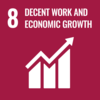In 2021, Oxford University adopted a world-leading Environmental Sustainability Strategy, which committed it to both Net Zero carbon emissions and Net Gain in biodiversity by 2035. Oxford University identified opportunities to improve carbon and biodiversity accounting practices, in its own processes and those applied more widely and acted to improve them. These were communicated publically on the website and in the Financial Statement 2020/21.
For carbon accounting:
To align with industry best practices and demonstrate accuracy and transparency, the University’s Environmental Sustainability team partnered with academics in Saïd Business School to develop an improved process to account for Scope 1, 2 and 3 emissions. The tool draws on the Greenhouse Gas (GHG) Protocol and takes into account unique sources of indirect emissions associated with the University’s activities, such as student travel and upstream transport emissions, applying innovative and unique solutions to sector wide challenges.
This work, for the first time, provides a detailed and transparent methodology, benchmarked across higher education and best practice within a common supply chain, to help organisations better understand, and then mitigate, their indirect emissions. See here.
For biodiversity reporting:
Working closely with the University’s Environmental Sustainability team, Oxford researchers used Oxford University to carry out the first quantitative assessment of both the environmental impact of a large organisation and feasible options for compensating for them, in order to reach Net Gain in biodiversity. Elements of the report served as a baseline for the University’s strategy, and the full report and methodology were recently published in Nature.
URL to access our latest sustainability report or sustainability section(s) of our annual report:
https://sustainability.admin.ox.ac.uk/annual-reports
https://sustainability.admin.ox.ac.uk/files/summaryoftheenvironmentalprofitandlossreport.pdf
https://www.ox.ac.uk/about/organisation/finance-and-funding
https://www.nature.com/articles/d41586-022-01034-1



